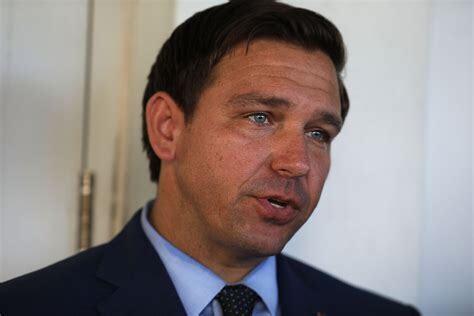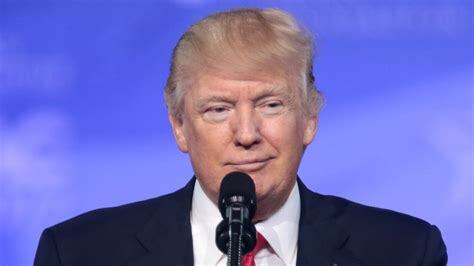Stuart Jeanne Bramhall's Blog: The Most Revolutionary Act , page 438
April 2, 2023
Israeli Protest Continues, Along with Challenges to Democracy

David S Meyer
Politics Outdoors
The massive extended protests against Prime Minister Benjamin Netanyahu continue, even as protesters claim credit for a victory. Netanyahu has postponed consideration of a plan to severely limit the independence of the judiciary, frustrating hard right allies within his coalition and, for the moment at least, emboldening the opposition, as seen above in the streets of Tel-Aviv.
Why the protesters in the street won at all, when large persistent protests elsewhere (for example, France–against raising the retirement age; Kentucky–against a bill criminalizing gender affirming care; Tennessee–for modest gun safety measures) have yet to make an impact on policy, is the first issue. Why the protests continue after an apparent win is the second.
The size and number of protests matters, of course, but it’s not enough. In any kind of democratic system, protesters need allies in government willing to listen to them. Protesting Israelis had to mount a political threat to the Netanyahu government, which means signaling the capacity to disrupt the governing coalition. On the surface, this shouldn’t have been so difficult: Netanyahu’s far-right government was supported by 64 of 120 members of the Knesset–oddly, the largest majority a government had enjoyed in years. But the people protesting didn’t appear to include anyone the governing parties needed.
Netanyahu’s proposed reform would have allowed the government to appoint judges and to ignore their rulings–an essential demand for some of the far right and religious parties–and a massive provocation to their opponents, who viewed it as a threat to democratic governance altogether. The scope of this threat, coupled with longstanding antipathy to Netanyahu, helped sustain large protests.
But there was more: Military service in Israel is extremely common, if not quite universal, with exemptions for Arabs and ultra-orthodox Israelis. Broad conscription means that the Israeli Defense Force includes men and women from across the political spectrum who are prepared to participate in campaigns they might oppose as matters of policy (for example, harsh policing of Palestinians; relocating resistant religious settlers). For better and worse, democratic legitimacy makes this possible.
As the campaign against the government grew, it touched the military. Hundreds of reservists who served in exclusive units, including special forces and intelligence, announced that they would not show up for service. Fighter pilots demanded an end to the reform, threatening to refuse calls to service as well. And the tremendous disruption within Israel gave US President Joe Biden the incentive and political space to weigh in as well, announcing that decades of US military and political support was a response to Israel’s commitment to democracy.
Netanyahu was prepared to push ahead regardless, but his Minister of Defense, Yoav Gallant, was not. Netanyahu fired Gallant immediately, but furtive negotiations within his coalition suggested that Gallant was not the only one prepared to leave the government to preserve an independent judiciary. Remember the narrow margins–it would take just a few defectors to bring the government down. Political unrest within the government made the street protests possible, and the prime minister announced that he would return to judicial reform later.
Stalling on judicial reform, while making additional concessions to the far right he disappointed, allowed Netanyahu to survive the moment, but he’d announced a postponement, not an end. Netanyahu plans to bring it back when, he hopes, political circumstances will be more favorable. The opposition’s victory could be short-lived. It wouldn’t be the first time. Surely, some protesters remembered that Hong Kong’s leadership suspended an unpopular law to stop a protest movement in 2019, only to institute far harsher reforms months later.
So, thus far, the protests continue, as a broad opposition evaluates broader goals, perhaps ousting Netanyahu, or adopting some kind of Constitution. It’s not over.
Meanwhile, on the outside, activists want to take inspiration from the successes of the moment. But we need to remember that the opposition didn’t succeed because they waved Israeli flags at the demonstrations, nor just because of their numbers, the tactics, or commitment. Tunnel vision on the actions in the streets leads to missing the importance of connecting protest to politics.
[…]
April 1, 2023
Arizona House Joins Senate in Passing Resolution to Ban Foreign Voting Machines and Require Source Code, Ballot Images, Chain of Custody Documents, and Log Files to Be Made Public
 SCR1037 House Vote
SCR1037 House VoteWomen System
The Arizona House voted yesterday to pass Senate Concurrent Resolution 1037, setting official requirements for the use of electronic voting machines in the state and banning the use of some.
The resolution passed in the Arizona Senate on March 6 by a vote of 16-13.
On Thursday, March 30, The Arizona House joined the Senate and voted 31-27 in favor.
This resolution will bypass the Governor and go directly to the Secretary of State’s office. If the Secretary of State does not comply with this order, the Legislature can and likely will sue.
The Gateway Pundit previously reported that the Arizona Senate Elections Committee, chaired by State Senator Wendy Rogers, passed the amended resolution introduced by State Senator Anthony Kern.
State Senator Sonny Borrelli’s strike everything amendment set official requirements for the voting machines to ensure all levels of production occur in the United States, source code is made publicly available, and directing the Secretary of State to post ballot images, chain of custody documents, and log files on their website within 24 hours after polls close.
It states:
Page 1, strike everything after the resolving clause and insert:
“That no voting system or component or subcomponent of a voting system or component, including firmware software or hardware, assemblies and subassemblies with integrated circuits or on which any firmware or software operates, may be used or purchased as the primary method for casting, recording and tabulating ballots used in any election held in this state for federal office unless:
1. All components have been designed, manufactured, integrated and assembled in the United States from trusted suppliers, using trusted processes accredited by the Defense Microelectronics Activity as prescribed by the United States Department of Defense; and
2. The source code used in any computerized voting machine for federal elections is made available to the public; and
3. The ballot images and system log files from each tabulator are recorded on a secure write-once, read-many media with clear chain of custody and posted on the Secretary of State’s website free of charge to the public within twenty-four hours after the close of the polls; and
4. The legislature transmits this resolution to the secretary of state.”
Read the full resolution here.
The House Bill Summary states, “the Secretary of State is charged with appointing a committee to investigate and test the various types of vote tabulating machines. The committee submits its recommendations to the Secretary of State who will then decide the make or model to be certified for use in the state.”
Following its passage in the Elections Committee, Senator Wendy Rogers tweeted,
SCR 1037 is AZ legislature resolved to reclaim its plenary power to oversee FEDERAL elections per the US Constitution, irrespective of governor.
Clarification
SCR 1037 is AZ legislature resolved to reclaim its plenary power to oversee FEDERAL elections per the US Constitution, irrespective of governor.
SB 1074 acknowledges the state legislature having authority over STATE elections, which requires a governor’s approval.
— Wendy Rogers (@WendyRogersAZ) February 14, 2023
Katie Hobbs cannot veto this legislation as she has done with an overwhelming majority of the bills sent to her desk.
[…[
Via http://www.womensystems.com/2023/03/huge-arizona-house-joins-senate-in.html
Russia Assumes Presidency of UN Security Council: Interview with Their Permanent Representative
 Vassily Nebenzia
Vassily Nebenzia
Tass News Agency
Via Internationalist 360 °
Q: What are the main events planned during the Russian Presidency of the UN Security Council in April? Do you expect the representatives of the central apparatus of the Ministry of Foreign Affairs?
A: We are planning three central events, all in the format of open debates. The first ones are to be held on April 10 on the topic of risks stemming from violations of agreements regulating the export of arms and military products. This topic is extremely relevant. We have long been talking about the need to restore order in this area. Russia has strict legislation governing the supply and export of conventional weapons, and we strictly comply with all our obligations. This also applies to end-user certificates that prevent the uncontrolled “spread” of weapons. Unfortunately, many other defense exporters are far from being so conscientious, openly disregarding their own national legislation, as well as international agreements designed to prevent weapons from falling into the wrong hands. As a result, international black markets have been flooded with weapons that are untraceable and pose a serious threat. This is a pressing issue, and we intend to discuss it with a wide range of UN member states.
We expect Minister Lavrov to arrive in New York in the second half of April. He will chair an open debate on April 24 on the topic of effective multilateralism in defense of the principles of the UN Charter. Our idea is to hold a comprehensive, forward-looking strategic discussion about the contours of a new world order that is coming to replace the unipolar one. We call on UN members to look beyond the horizon of the current moment and present their vision of how we could build a truly multipolar world through joint efforts, in which the interests of all states would be guaranteed. To do this, it is important to discuss the topic of protecting the purposes and principles of the UN Charter, including sovereign equality of states. This conversation is long overdue.
The Minister will also chair an open debate on the Middle East settlement on April 25. We believe that this will be a good opportunity to discuss the complex dynamics of the situation in the Middle East, especially the stagnation of the Palestinian-Israeli settlement process and the growth of tensions.
The rest of the meetings will be held in accordance with the mandate-reporting cycle. Among other things, the Council will discuss the situation in Mali, Colombia and Haiti. A meeting on Kosovo is scheduled. The traditionally rich Middle East bloc will include discussions on the Yemeni issue, Libya and Syria.
Q: Do you think the UN heard Russia’s demands to remove the obstacles to the export of Russian food and fertilizers in order to ensure the extension of the grain deal after mid-May?
A: As you know, the “grain deal” is a package, in other words, they are interconnected agreements signed on July 22, 2022 in Istanbul. The first is the “Initiative for the safe transportation of grain and foodstuffs from Ukrainian ports”, the so-called “Black Sea Initiative”, which is being implemented very actively, including thanks to the efforts of Russian inspectors. The second one is “Memorandum of Understanding between the Russian Federation and the UN Secretariat on Facilitating the Promotion of Russian Food Products and Fertilizers to the World Markets”. Within the framework of the UN, the Secretariat of the United Nations Conference on Trade and Development (UNCTAD) is responsible for the implementation of the second – Russian – part of the “Istanbul agreements”. In addition to high-level political exchanges between the UN Secretary General Antonio Guterres on the implementation of the mentioned Memorandum and the leadership of Western countries that have imposed unilateral sanctions against our country, a team of UNCTAD experts headed by the Secretary General of UNCTAD Rebeca Grinspan has been involved in negotiations with representatives from these states from the very beginning.
These negotiations are not abstract or debatable, but are designed to solve specific financial and logistical problems that our economic operators face. We share all relevant information with UNCTAD on a regular basis. This is also done in order for the UN Secretary General to have an understanding of how the so-called “package” agreement, which A. Guterres proposed to us, is being implemented in practice.
As you yourself may have repeatedly heard this year on the eve of of the March 18th expiration of the second term of the “Black Sea Initiative”, the UN Secretariat was clearly unable to ignore the lack of any progress on the implementation of the Russia-UN Memorandum against the background of indicators of the Ukrainian part of the “grain deal.” Therefore, the UN was forced to publicly acknowledge not only the problems of Russian food and fertilizer exporters, but also the lack of any leverage for the UN to solve them.
Thus, taking into account the facts we provide, the world organization from the very beginning heard and knew our demands to unblock the activities of Russian companies exporting relevant goods. These requirements for the implementation of the package deal remain in place for the next 60 days of the Istanbul agreements. We expect concrete results from the UN by May 18th of this year. Otherwise, the Secretariat will have to acknowledge that all the theses of the Western states about the allegedly “targeted” effect of their unilateral sanctions (not aimed at food) and about the “effectiveness” of humanitarian exemptions are another “dummy.”
So far, the UN does not dare to state this, including due to pressure from Western countries, which in the current situation, instead of real assistance to needy states, use the moment to earn extra money and make long-term food supplies themselves, and lay the blame for all crises on Russia. An analysis of the first and second stages of the implementation of the “Black Sea Initiative” reveals the West is playing with a “stacked deck.” Judge for: the increase in the total volume of cargo amounted to 23%. Shipments to developed economies increased from 78% to 85%. At the same time, supplies to the least developed countries fell from 4.2% to 1.34%, including a drop in supplies from the UN World Food Program from 2.89% to 1.16%.
However, in the context of the growing threats to global food security, which no one can ensure without Russian fertilizers and grains, as well as the consequences of illegitimate unilateral sanctions that place a heavy burden on developing countries, it is becoming increasingly difficult for Washington, London and Brussels to “lead by the nose” the states dependent both on food imports and on donor assistance. And the vulnerable countries themselves are beginning to worry more and more about this, sending appropriate signals to the UN Secretary General and UNCTAD.
Q: Recently the American media has increasingly expressed the opinion that Russia should not be given the right to chair the Security Council because of the events in Ukraine. Are such restrictions possible in practice?
A: It’s hard to call such attacks something new – we hear it regularly, especially actively – starting from February 24, 2022, as well as calls to deprive us of permanent membership in the UN Security Council. Those who use this cheap demagogy to deprive Russia of its legitimate legal status are well aware of the legal side of the issue. Russia is the continuator of the USSR, subject of international law who inherited not only the rights and obligations of its predecessor, but also its very legal character. The status of the Russian Federation as the continuator state of the USSR is officially recognized by the international community. Russia’s exclusion from the UN Security Council is impossible without changes to the UN Charter, just as it is impossible to deprive Russia of the right to chair the Council. This is simply absurd. Our colleagues in the Security Council understand this very well, just as they understand that without Russia not only would the work of the Security Council lose its meaning, but also the work of the UN as a whole. And that would mean the destruction of the entire established system of international relations.
Q: Will the informal meeting of the UN Security Council on the “Arria formula” on children evacuated from the Ukrainian conflict zone touch upon the issue of their return, as you mentioned at the press conference?
A: The “Arria formula” meeting is designed to bring to the international community first-hand information about evacuated children from the war zone in Donbass and Ukraine and dispel the false narrative spread by the Western media about the alleged “abductions” of children from Ukraine and attempts to “destroy their identity.”
[…]
Iroquois and Algonquin Prior to Conquest

Episode 24: Iroquois and Algonquin Prior to Conquest
Ancient Civilizations of North America
Dr Edwin Barnhart (2018)
Film Review
Prior to European contact, peoples speaking Iroquoian and Algonquian languages were located mainly in the Northeastern US and Canada. The Alqonquian speakers lived along the East coast and north of the Great Lakes. The Iroquoian speakers were essentially limited to modern day New York and Pennsylvania.
The Iroquois Confederation
The Iroquois were hunter gatherers until 1000 AD when interaction with the Mississippian civilization led them to take up corn, squash and bean agriculture. The Algonquin, in contrast, remained hunter gatherers. Those in Canada did so because it was too cold to grow corn. Those on the Northeast coast had no need for it, owing to abundant food resources (fish and shellfish in summer and moose, caribou and deer in winter).
Prior to adopting corn agriculture, the Iroquois lived in dome shaped wigwams with thin pole frames covered with bark.

After adopting agriculture, they lived in multi-family long housees.

Corn resulted in a major shift in Iroquois gender roles. As women became farmers and pot makers, they assumed a more dominant role in both Iroquois culture and village life. According to Barnhart as Iroquois society became matrilineal,[1] men became “commodities traded between the female blood lines.”
Owing to soil depletion, Iroquois tended to move villages every 20 years. Very large villages (2,000-3,000 people and growing land scarcity leading to increased led to increased warfare between villages. Iroquois warfare sometimes included ritual sacrifice of prisoners or cannibalization. After 1300 AD, Iroquois adopted defensive palisades (see photo above) and made their long houses more defensible by eliminating the windows and reducing the sie of their doors.
In the 17th century, five Iroquois nations (Mowhawk, Oneida, Onondaga, Cayuga and Seneca) united under the Iroquois Confederacy to form a pact of nonviolence. Fifty sachems (chiefs) elected by female clan elders met at Lake Onondago to draw up the 117 articles of confederation,[2] which were recorded in wampum. The latter was a primitive system of writing also used to record council decrees, tell stories and designate individuals of high rank.[3]
After unification, the Iroquois successfully spread their influence west to the Mississippi River.
History of European Contact
In his final lecture, one of Barnhart’s goals is to establish (contrary to what we’re taught in school) that the 1620 Plymouth Rock settlers weren’t the first Europeans to make contact with indigenous Americans.
The first European contact with North America (confirmed by carbon dating) occurred when the Viking explorer Leif Erickson said up a trading colony in Vineland Newfoundland a little before 1000 AD. The Vikings returned to Vineland episodically to trade unti the 1300s.
In 1497, explorer John Cabot, who had read Viking descriptions of Vineland, found evidence of European trade there but no surviving Vikings.
Between 1500-1501 the Corte-Real brothers also sought out Vineland and claimed Newfoundland for Portugal. In 1506 the Portuguese cod trade in Newfoundland was so robust, the king imposed a tax on it.
French Explorers and Settlers
In 1531, the French sent Verrazzano to North America to hold informal meetings with the Algonquin chiefs.In 1535-36 Explorer Jacques Cartier mapped the St Lawrence.In 1603-1609 de Champlain allied with the Algonquin in a war against the Iroquois. The Iroquois won. In 1608, he made Quebec the capitol of new France.Squanto’s History
Squanto,[4] the native American who helped the Plymouth Rock settlers in 1620, had been kidnapped and sold into slavery (in Spain) in the early 17th century. He somehow made his way way to England where he learned English and negotiated his return to North America. When he arrived home, he discovered his entire tribe had been decimated.
[1] Matrilineal societies trace kinship through the female, rather than male, line.
[2] On which the American colonists’ Articles of Confederation was based.
[3] Wampum was also used as currency until the Europeans deliberately destroyed its value by mass producing it.
[4] His full name was Tisquantum meaning wrath of God.
Film can be viewed free with a library card on Kanopy.
https://www.kanopy.com/en/pukeariki/watch/video/5713021/5712784
March 31, 2023
Ted Cruz, Elizabeth Warren, and More Unlikely Senators Propose Bill to Break Up Google and Meta
 By Thomas Germain
By Thomas GermainGizmodo
The dramatically named AMERICA Act would prohibit big companies from owning multiple parts of the digital ad ecosystem.
A powerful and bizarre coalition of Senators have teamed up on a bill that could strike down the digital ad dominance of Google and Meta, though the proposed legislation never mentions those companies by name. The AMERICA Act could radically transform advertising technology, the financial backbone of the internet.
Try to say the bill’s title in one breath: The Advertising Middlemen Endangering Rigorous Internet Competition Accountability Act, aka the AMERICA Act. Say what you will about government; Congress’ acronym acumen is untouchable. Introduced by Republican Sen. Mike Lee of Utah, the bill would prohibit companies from owning multiple parts of the digital ad ecosystem if they “process more than $20 billion in digital ad transactions.”
The bill would kneecap Google and Meta [Facebook], the two biggest players in digital advertising by far, but its provisions seem designed to affect almost every big tech company from Apple to Amazon, too. Google, Meta, Amazon, and Apple did not respond to requests for comment.
The only thing longer than the name of the bill is the stunningly bipartisan list of Senators supporting it: Democrats Amy Klobuchar, Richard Blumenthal, and Elizabeth Warren, and Republicans Ted Cruz, Marco Rubio, Eric Schmitt, Josh Hawley, John Kennedy, Lindsey Graham, J.D. Vance, and Lee. As one observer put it on Twitter, it’s a list of cosponsors “who wouldn’t hold the elevator for each other.” Look at all these little Senators getting along. Isn’t that nice?
“Companies like Google and Facebook have been able to exploit their unprecedented troves of detailed user data to obtain vice grip-like control over digital advertising, amassing power on every side of the market and using it to block competition and take advantage of their customers,” Sen. Lee said in a press release. “The conflicts of interest are so glaring that one Google employee described Google’s ad business as being like ‘if Goldman or Citibank owned the NYSE.’”
This means Google is now fighting a legal battle on four different fronts. The Justice Department filed an antitrust case against the tech giant in January, and an entirely separate DoJ antitrust case filed in 2020 against Google is also scheduled for trial this year. Meanwhile, multiple states attorneys general have filed antitrust suits against Google over Google Pay’s fees and an alleged digital ad monopoly.
“If enacted into law, this bill would most likely require Google and Facebook to divest significant portions of their advertising businesses—business units that account for or facilitate a large portion of their ad revenue,” Sen. Lee said in a fact sheet about the bill. “Amazon may also have to make divestments, and the bill will impact Apple’s accelerating entry into third-party ads.”
To understand what all the fuss is about, I regret to inform you that you must understand a little bit about the advertising technology stack. You’re two paragraphs away from everything you need to know about ad tech to bore impress people at parties. (If you want, you can pretend you’re scrolling TikTok and open a Subway Surfer video.)
When you see an ad online, it’s usually the result of a lightspeed bidding war. On one side, the demand side, you have companies who want to buy ads. On the other, the supply side, are apps and websites who have ad space to sell. Advertisers use demand-side tech to compete for the most profitable ad space for their products. Publishers, like Gizmodo.com, use supply-side tech, where they compete to sell the most profitable ads. Sometimes there’s a third piece of tech involved called an “exchange,” which is a service that connects demand-side platforms and supply-side platforms to arrange even more complicated auctions.
Your friends at Google operate the most popular demand-side platform. Google also owns the most popular supply-side platform, and it runs the most popular exchange. And Google is also a publisher, because it sells ad space on places like YouTube and Search. Meta likewise has its hands in multiple corners of the pie. Here’s an analogy: it’s like if the realtor you contracted to represent you in buying a house had also been contracted by the people selling the house. It would be hard to trust that anyone was getting a fair deal, wouldn’t it? That realtor would be in a unique position to jack up the prices for everyone and make extra cash. The dominance is quantifiable—Google itself estimates that it snatches a stunning 35% of every dollar spent on digital ads.
Some people think this is all a little unfair! Unfortunately for Google and Meta, more and more of those people work for the US government.
The AMERICA Act takes several steps to address this, according to its authors. It would prohibit big companies who own exchanges from owning supply- or demand-side platforms, as Google does. It also says you can’t own a supply-side platform if you run a demand-side platform, and vice versa—as Google does.
The bill would also compel companies that process more than $5 billion in digital ad transactions to protect their customers and competition. They would be legally obligated to protect the interests of their customers and provide transparency so that protection can be verified. Any company hoping to operate on both sides of the market would be required to “erect firewalls to prevent abuse and conflicts of interest.”
Taking on big tech may be the only thing that truly unites Democratic and Republican lawmakers. Earlier this month, a bipartisan committee put TikTok’s CEO through the gauntlet in a brutal five-hour hearing.
This isn’t the first congressional bite at this digital antitrust apple. Sen. Lee introduced a nearly identical bill last year, which floundered without much fanfare. But as self-imposed pressure mounts on Congress to do something about this problem, it looks more and more likely that action is a possibility.
[…]
Via https://gizmodo.com/google-facebook-america-act-ads-break-up-cruz-warren-1850287725
The Trump Indictment Is Far From an Open-and-Shut Case

Donald Trump speaks at rally in Waco, Texas, March 25.PHOTO: SUZANNE CORDEIRO/AGENCE FRANCE-PRESSE/GETTY IMAGES
By Ethan Greenberg and Sam Braverman
A Manhattan grand jury has reportedly voted to hand up an indictment of Donald Trump. The charge is expected to involve a “hush money” payment made to the pornographic film performer known as Stormy Daniels.
If Mr. Trump is charged, it seems likely to be for falsifying business records in violation of New York Penal Law 175.10, a Class E felony punishable by up to four years in state prison. The prosecution will probably claim that Mr. Trump falsified the records of the Trump Organization by falsely characterizing $130,000 paid to Ms. Daniels as a “legal fee” to attorney Michael Cohen. The prosecution will also contend that Mr. Trump’s crime was a felony because it was committed with the intent to conceal the federal election-law crime that Mr. Cohen committed by paying Ms. Daniels. Mr. Cohen pleaded guilty in August 2018 and was sentenced to prison by a federal court.
The prosecution faces several legal hurdles in pursuing such a case against the former president, but those hurdles aren’t the ones that Mr. Trump’s lawyers and supporters have thus far focused on in their public comments. Those “theories of defense” can be disposed of quickly:
• The hush money was a “legal fee.” A payment for another purpose doesn’t somehow become a “legal fee” because it was funneled through a lawyer.
• Selective prosecution for political reasons. This may or may not be a strong political argument, but it’s a weak legal one. Because of separation-of-power concerns, courts are reluctant to inquire into a prosecutor’s motives for bringing a criminal case, so long as there is probable cause to support a charge.
• The prosecutor can’t bump the charge up from misdemeanor to felony because Mr. Cohen, not Mr. Trump, committed the election-law felony. There is no requirement under New York law that the crime the defendant intends to conceal be committed by the defendant himself, or that the crime be a violation of state (as opposed to federal) law.
Media reports about the case do, however, suggest three more-viable defenses.
First, the falsifying-records statute requires that the defendant make, or cause to be made, a false entry in an enterprise’s business records. Until an indictment is handed up and unsealed, we won’t know precisely which Trump Organization record is alleged to be false, or what part then-President Trump purportedly played in making that record.
Presumably Mr. Trump, as company CEO, had a limited role in the details of the Trump Organization’s record-keeping practices. That role surely became even more limited once he entered the White House. It is thus unclear how the prosecution would prove beyond a reasonable doubt that Mr. Trump knew how the payment to Ms. Daniels would be recorded in the Trump Organization’s books. Perhaps Mr. Cohen’s testimony, or the testimony of some currently unnamed Trump Organization employee, can show Mr. Trump’s personal knowledge of and involvement in the alleged false record-keeping. But, in the absence of such testimony, the prosecution’s case may founder on this elementary point.
Second, there is a clear division in New York case law about the meaning of “intent to defraud” in the falsifying-business-records statute. One line of cases holds that “intent to defraud” in this context requires a showing that the defendant intended to deprive a victim of money, property or a pecuniary interest. But other courts have held that no such requirement exists; all that must be shown is that a deliberately false entry was made in a business’s records. The prosecution’s theory will likely be that Mr. Trump’s motive for falsifying business records was to deceive federal election-law authorities—and voters. But if the precedents that require an intent to cheat a victim out of money are held to govern, the prosecution will fail.
Mr. Trump’s most favored defense will likely be a factual one. His lawyers will undoubtedly argue that no jury should believe anything Mr. Cohen or Ms. Daniels says. Any defense attorney would salivate at the chance to cross-examine these “star” witnesses. Mr. Cohen has been convicted not only of making false sworn statements to Congress, but also of lying on his federal tax forms. His many inconsistent statements about the Daniels matter make staking a conviction on Mr. Cohen’s claims a significant challenge for the prosecution.
Ms. Daniels will surely be portrayed by the defense as a witness unworthy of belief by virtue of both her profession and her prior statements. Mr. Trump’s lawyers will assert that she has at times been paid to tell different stories. Why should Ms. Daniels be believed now, in the circuslike atmosphere of a Trump trial?
In sum, Mr. Trump’s best defense may be the boring legal argument that even if all the facts alleged by the prosecution are accepted as true, he lacked the required intent to cheat a victim out of money or property. But when has Mr. Trump ever chosen the boring option?
Messrs. Greenberg and Braverman are shareholders in Anderson Kill’s New York office and co-chairmen of the firm’s white-collar defense group. Mr. Greenberg has served as a New York state judge.
Source: WSJ
Via https://peckford42.wordpress.com/2023/03/31/the-trump-indictment-is-far-from-an-open-and-shut-case/
WHO Now Says COVID Vaccines Not Recommended For Healthy Kids & Teens

Posted BY: | NwoReport
Yet another leading health institution has unveiled a significant Covid policy reversal this week… this time it’s none other than the World Health Organization (WHO) saying something that might have gotten an individual suspended from social media or publicly “canceled” a mere one or two years ago:
WHO now recommends healthy, young people NOT get the Covid Vaccines. pic.twitter.com/77FP0Qvi7v
— Citizen Free Press (@CitizenFreePres) March 30, 2023
The revision in guidelines was put out this week by the WHO’s Strategic Advisory Group of Experts on Immunization (SAGE) – a group of scientists and officials that said they no longer recommend the Covid vaccine for “healthy” children ages 6 months to 17 years.
“The public health impact of vaccinating healthy children and adolescents is comparatively much lower than the established benefits of traditional essential vaccines for children – such as the rotavirus, measles, and pneumococcal conjugate vaccines,” SAGE wrote.
The new policy identifies three priority groups — high, medium, and low — and puts children and teens in the low category. The definitions assess categories for “risk of severe disease and death”. The WHO still recommends that “Children who have compromised immune systems or existing health conditions should still get the vaccine.”
SAGE Chair Dr. Hanna Nohyn stated in explaining the updated guidelines, “Updated to reflect that much of the population is either vaccinated or previously infected with COVID-19, or both, the revised roadmap reemphasizes the importance of vaccinating those still at risk of severe disease, mostly older adults and those with underlying conditions, including with additional boosters.”
The United States CDC currently recommends Covid vaccines for children 6 months and up…

It’s unclear whether the US Centers for Disease Control and Prevention (CDC) will follow in adapting its recommendations to this revised WHO policy, but what is clear is that those parents who remained skeptical of putting hastily developed “Authorized for Emergency Use” mRNA vaccines into their children have been clearly vindicated… and this time by no less than the WHO.
[…]
Via https://nworeport.me/2023/03/31/who-now-says-covid-vaccines-not-recommended-for-healthy-kids-teens/
Florida Won’t Extradite Trump
 RT | March 31, 2023
RT | March 31, 2023Donald Trump’s potential top rival for the Republican Party’s 2024 presidential nomination, Florida Governor Ron DeSantis, has ripped the New York City prosecutor behind the criminal indictment of the former president.
“Florida will not assist in an extradition request given the questionable circumstances at issue with this Soros-backed Manhattan prosecutor and his political agenda,” DeSantis said in a tweet on Thursday.
So far there has been no reports of any potential extradition requests, as a spokesman for the Manhattan district attorney’s office told AP that prosecutors had reached out to Trump’s legal team to “arrange a surrender” and a court appearance, expected sometime next week.
DeSantis previously said he wouldn’t get involved in the case “in any way,” indicating that he wouldn’t try to help block the Florida resident’s extradition to New York, but has now echoed Trump’s belief that Manhattan District Attorney Alvin Bragg “is stretching the law to target a political opponent.”
“The weaponization of the legal system to advance a political agenda turns the rule of law on its head. It is un-American,” DeSantis added.
Trump did not reveal his next steps, but warned in a post on Truth Social that this “witch-hunt will backfire massively on Joe Biden,” while his lawyer Joe Tacopina vowed to “vigorously fight this political prosecution in court.”
[…]
Via https://alethonews.com/2023/03/30/florida-will-not-extradite-trump-desantis/
March 30, 2023
Grand jury votes to indict Trump
 By Ben Whedon
By Ben WhedonJust the News
A Manhattan grand jury has reportedly voted to indict former President Donald Trump over his alleged role in a payment to Stormy Daniels in 2016, making him the first former president to face criminal charges.
The felony indictment is under seal but the exact charges are likely to be announced soon. A source with direct knowledge of the matter confirmed the indictment to Just the News.
Trump has not yet been arrested but he will face arraignment on the charges, be fingerprinted, and may be handcuffed. Manhattan District Attorney Alvin Bragg has pursued the case, drawing scrutiny from legal experts and political pundits for pushing an alleged political prosecution.
Federal prosecutors previously declined to pursue charges related to the Daniels payment.
The indictment drew scrutiny from George Washington University Professor Jonathan Turley, who called it an “inglorious moment where even some of the left have criticized the effort.”
“Bragg and NY AG James ran on bagging Trump,” he continued. “This has fulfilled that pledge but, if the indictment follows the course described in coverage, it is deeply flawed theory.”
The case involves a payment of $130,000 that Trump’s then-personal attorney Michael Cohen made to Daniels. Trump later paid the same amount to Cohen and listed that payment as a legal fee.
Bragg’s case may hinge upon the categorization of that listing as a falsified business record. He would further need to convince a jury that the payment constituted a campaign finance violation.
Bragg needs to prove both points in order to show that the allegedly falsified business record was altered to conceal a separate, underlying crime. Merely asserting the first point would constitute a lesser charge that carries a two-year statute of limitation, which has already passed.
Legal experts have derided the case as baseless and Trump’s new personal attorney, Joe Tacopina, has asserted that such a payment to Cohen was in fact a legitimate legal fee.
Moreover, he has insisted that the transaction would “exist irrespective of the campaign,” a key point in arguing against its status as a campaign payment.
Tacopina characterized the matter as a “nuisance” payment, noting that Trump denies ever having an affair.
[…]
Speaking of Guillotines: Angry French Protestors Shift Focus from Pension Fiasco to Macron Himself

By Ethan Huff
Citizen News
The blue collar worker-led protests that erupted in Paris have shifted in tone from focusing solely on the pension fiasco to demanding that President Emmanuel Macron’s head be served to them on a platter. This is a figure of speech, of course – or is it? Some protesters did write something on the wall of a building in Paris about rolling out the guillotine, drawing parallels to the French Revolution of times past.
“We have moved from a social crisis on the subject of retirement to the beginnings of democratic crisis,” said Laurent Berger, leader of the French Democratic Confederation of Labor, the largest and most moderate labor union in France. “Anger is rising, and before us we have a president who does not see that reality.”
On the same wall where a guillotine is mentioned, admittedly in reference to Charles III and his planned, but now postponed, trip to Paris to dine with Macron at the Château de Versailles, a giant mock message from Macron to French workers reads: “You elect me, I decide, and you shut up.”
In other words, Macron took office and immediately became a tyrant, ignoring the concerns of his constituents. And because Macron refuses to take the protests seriously, all eyes are now on him as the French people demand answers and action. (Related: Remember when Macron launched a digital covid identification scheme in France right after being reelected?)
Who has less public support: Macron or Biden?According to The Seattle Times, all this talk about revolution and guillotines is almost a reenactment of the popular uprising that occurred in 1789, which led to the guillotining of the king and queen, as well as the abolition of the monarchy three years later.
Regardless of where these new protests lead in the end, it is obvious that Macron is not popular among the French, and that he crossed some kind of red line in all this that has caused people to say, off with his head! At a time when polls showed that two-thirds of the country opposed the retirement law that started all this, Macron rammed it through anyway, even though it never even got voted on by the lower house of parliament. Since that time, Macron’s popularity has plummeted with only a 28 percent approval rating.
This might even be as low as fake president Joe Biden’s approval rating, minus the illegal aliens and dead people whom the American media likely “polled” to pad the numbers. French law stipulates that the way Macron is governing defies the nation’s constitution, period. Macron clearly feels as though he is above the law, just like Biden does, except in France they actually take to the streets to do something about it.
“Indeed, it is precisely because Macron judged that his bill raising the retirement age might not survive a vote, but his government stood a better chance of doing so, that he opted to use the top-down 49.3, viewed by his critics as anti-democratic,” the Times reported about how Macron was able to pass the unpopular law raising the retirement age.
To make matters worse, Macron rubbed it in the public’s face that he passed his retirement law unconstitutionally, comparing the blowback that resulted to the January 6, 2021, “insurrection” of the United States Capitol building, which was clearly a staged false flag psy-op.
“What we have seen is the extreme verticality of Mr. Macron’s power,” said Berger. “Our union would like to engage in negotiation and reach compromise, but for that you need two.”
[…]Via https://citizens.news/711464.htmlThe Most Revolutionary Act
- Stuart Jeanne Bramhall's profile
- 11 followers



